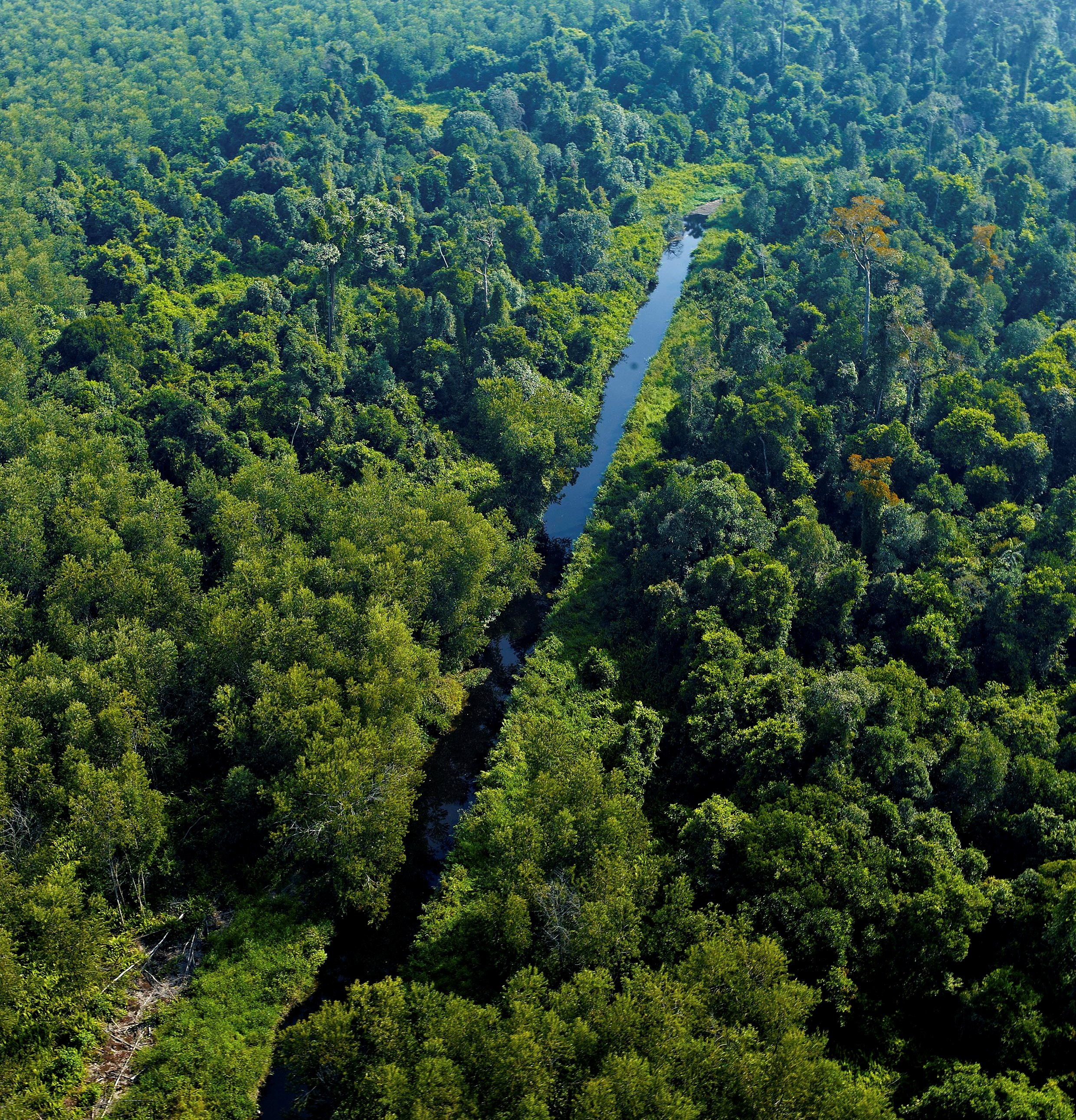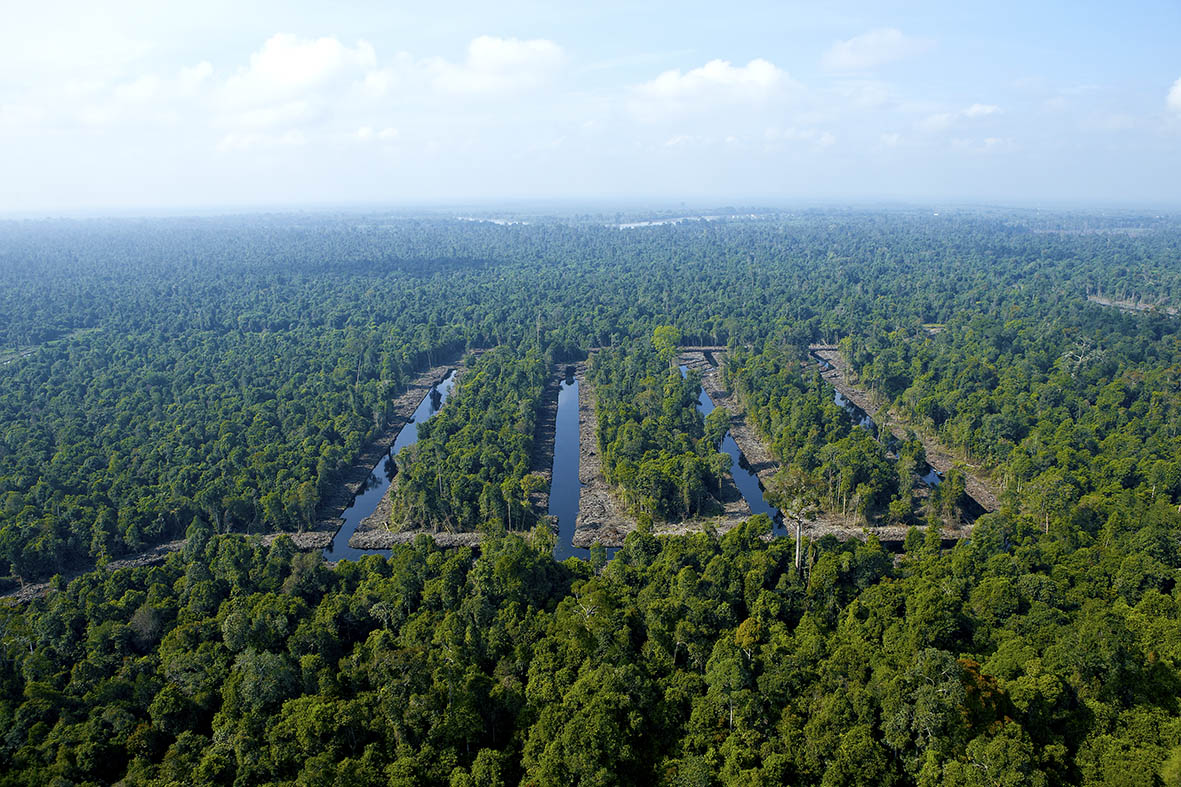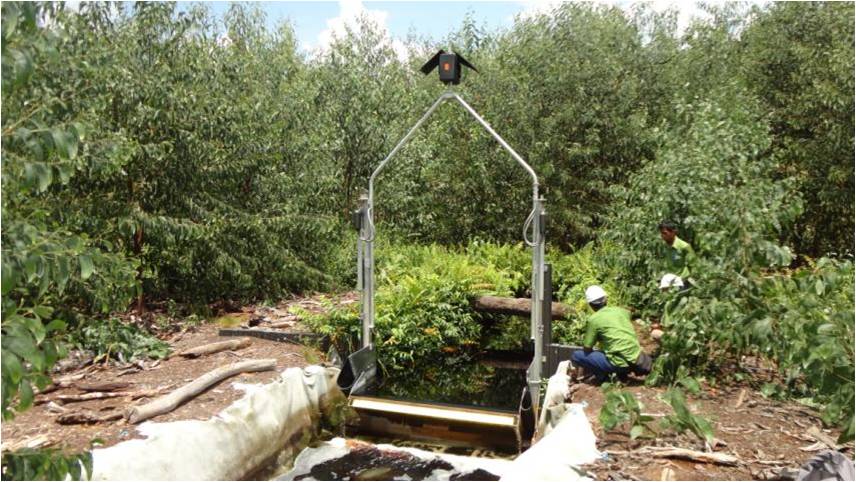Peatland Management – Key to a Sustainable Future
By: Anthony Greer, Head Peatland Sustainability
An important stream of forest-related discussions at the recent UN meeting on climate (COP21) and in other forums over the past several years has been the sustainability of peatlands where plantation forests have been established.

APRIL manages High Conservation Value Forest
The science on this is continually evolving and having many different points of view — from scientists, NGOs, governments, local communities and plantation forestry companies such as APRIL Group — help to enrich not only the scientific debate but also the policy discourse.
APRIL is committed to having a voice in that discussion and to contribute to the growing body of knowledge and best practices on responsible peatland management. As with most sustainability concerns, viable solutions are best developed through collaboration by all actors, factoring in the balance or integration of environmental, economic and social objectives in the landscape.
APRIL and its long-term supply partners manage 480,000 ha of plantation forests, of which about half are on peatland. Plantation land use is balanced by 250,000 ha of conservation forests within the concessions and 150,000 ha of previously degraded, selectively logged concessions on peatland that have been converted from production licenses to eco-restoration licenses.
Even when viewed on global terms, this total area of 400,000 ha is a significant conservation initiative. It represents 83% of APRIL’s 1-for-1 goal where it conserves one hectare for every hectare planted.
Under its Sustainable Forest Management Policy 2.0, APRIL has embedded commitments and actions toward enhanced research and development and continuous improvement of all operational practices. These include conservation and restoration, peatland management, plantation productivity improvement, fire prevention, and community development.
APRIL has been working to assess and manage peatland greenhouse gas (GHG) emissions, including the adoption of science-based measures to maximise the lifespan of peatland organic soils.
The overall approach consists of five steps:
- Landscape planning and zoning, including High Conservation Value Forest Assessments;
- Delineation, monitoring and management of water zones;
- Operational best management practices;
- Monitoring and reporting of peat land sustainability, including subsidence and GHG emissions;
- Protection, management and monitoring of conservation and restoration areas.
APRIL is open to considering best practices that are proven to reduce GHG emissions and increase soil lifespan, while maintaining the overall economic and social values of the landscape not just to the company but to the broader community and to Indonesia as a whole.
One of many scenarios in the ongoing peatland scientific debate is the practicality of removing all plantations from peatland. Based on two decades of experience, we believe that a complete halt to production agriculture, forestry and smallholder gardens on peat soils in Indonesia would result in as many problems as might be solved. The discussion needs to recognize the difference between unplanned, unorganized development that frequently involves fire as the agricultural tool for forest removal versus landscape level planning and integrated, active management where High Conservation Value forests are set aside and protected.
About 50% of the Kampar Peninsula remains under natural forest cover with some form of protected area status
Possible ways forward must be rationally and holistically considered against what can be implemented practically, while balancing environmental, commercial and developmental goals. Effective and science-based peatland management also requires significant, long-term funding. Many parties, including peatland experts and the APRIL Group, favour a balanced, landscape approach for long-term peatland protection and conservation.
APRIL cannot achieve this on its own and while it has a core group of internal specialists, collaboration and inputs from national and international advisers are always being sought. We are looking forward to the formal commencement of our International Peat Expert Working Group, which consists of experts from different fields, and to advancing best practices in peatland management even further based on their inputs.
Progress is being made in finding the best ways to manage the existing plantation landscape for increased production while also minimizing GHG emissions. We are already implementing many important solutions.

Water management
Delineation, Management and Monitoring of Water Zones
APRIL’s water management focus is on how to moderate flows – wet season and dry – not on drainage. Our framework is largely based on advice and outcomes from a Science Based Management Support Programme (SBMSP: 2006 – 2010) delivered by a consortium of international specialists headed by Deltares. APRIL continues to expand and fine-tune the implementation of the project recommendations, including an extensive monitoring, adjustment and reporting system.
The plantation management target is to maintain wet season water levels at 0.4 m below the soil surface. In order to achieve this, we have established more than 1,400 water zones controlled and managed by a total of 1,560 dams and 2,215 overflow weir structures.

Telemetric water control gate
Monitoring and Reporting of Peatland Performance — Subsidence, GHG Emissions and Biodiversity
APRIL maintains a network of over 340 peat subsidence monitoring points distributed throughout the plantation and conservation landscape.
Fire Prevention and Management
Uncontrolled fire, nearly always a result of human sources, is an ongoing threat to people who live in or near forests, to the livelihoods of forest dependent communities and to APRIL’s sustainable forest management.
APRIL in partnership with the community, government authorities and other fire management agents works to prevent, detect and suppress all fires that are on or immediately adjacent to its concession areas (3 km from concession boundaries). Our fire management process includes prevention, preparation, suppression and recovery.
APRIL’s Fire Free Village Programme (FFVP) was developed in late 2014 and a Pilot Program delivered in 2015 with nine villages. The programme focuses on engaging with local communities to understand the root causes of fires in the landscape and to develop a range of solutions to address these. During the worst possible El Nino episode in 2015, the FFVP has achieved results in preventing and minimizing fires in the majority of the pilot areas. It also offers the potential for behavioral transformation among the communities if sustained and scaled up.
APRIL also has a world class fire suppression team with over USD 7 million invested in equipment, staff and training. During the recent fire and haze crisis, it was encouraging that significantly fewer fires were recorded on and near our concessions compared to other provinces in Sumatra.
Peatland management, protection and conservation are important to the international community and to APRIL. We know we must not stand still on the issues that must be scientifically understood and addressed with the end view of a balanced, integrated delivery of social, environmental and economic imperatives. APRIL will continue to be part of the debate but will not lose sight of the urgent and ongoing work of implementing responsible, practical measures on the ground to ensure peatlands are a key element of a sustainable future for all.




